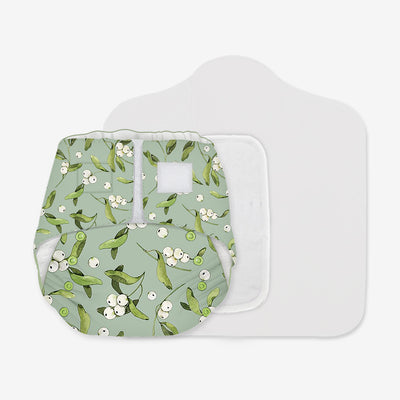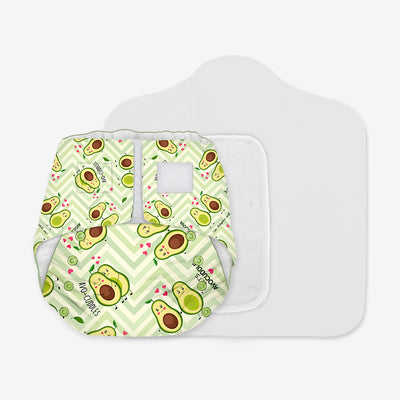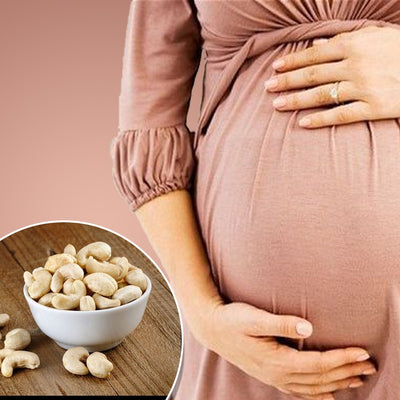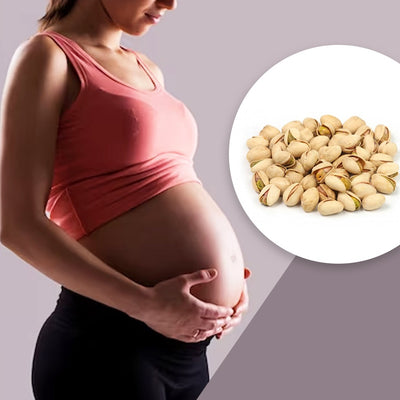Jamun for Pregnancy: Benefits for Expectant Mothers

Pregnancy is a miraculous journey filled with joy, anticipation, and a fair share of challenges. Expectant mothers are often on the lookout for foods that can provide essential nutrients and support their well-being during this critical phase. One such wonder fruit that deserves a place in the pregnancy diet is the Jamun, also known as Java plum or Indian blackberry. In this comprehensive guide, we will delve into the nutritional benefits of jamun during pregnancy and explore its various roles in promoting maternal and fetal health.
Nutritional Benefits of jamun for pregnancy
The nutritional benefits of Jamun For pregnancy extend beyond its vibrant taste. This purple fruit is a treasure trove of essential nutrients. Rich in vitamins C and A, it supports a healthy immune system and contributes to skin and vision health. Furthermore, Jamun provides crucial minerals like potassium, magnesium, and iron, which are vital for various bodily functions during pregnancy.
Vitamin C in Jamun aids in collagen formation, essential for maintaining healthy skin and supporting tissue repair. Additionally, it enhances iron absorption, a critical factor in preventing anemia during pregnancy.
Jamun's low-calorie nature is a boon for expectant mothers aiming to manage their weight without sacrificing nutrition. Its high fiber content helps combat digestive issues, such as constipation, which are common discomforts during pregnancy.
Incorporating Jamun into your diet can be as simple as enjoying it as a fresh snack, blending it into a smoothie, preparing a tangy chutney, or creating a refreshing sorbet. However, moderation is key to avoid potential digestive discomfort, and it's wise to consult your healthcare provider before making significant dietary changes during pregnancy.
Jamun for Pregnancy: Potential Effects on Fetal Development
The journey for pregnancy is a miraculous one, characterized by the rapid growth and development of the fetus within the mother's womb. The nutritional choices a mother makes during this time can significantly impact the health and well-being of the growing baby. Jamun, with its unique set of nutrients and antioxidants, has the potential to play a pivotal role in supporting fetal development.
1. Folate for Neural Tube Development
Folate, a B-vitamin found abundantly in Jamun, is a crucial nutrient for fetal development, particularly in the early stages of pregnancy. It plays a central role in the formation of the neural tube, which eventually develops into the baby's brain and spinal cord. A deficiency in folate can lead to neural tube defects, a serious condition that can affect the baby's nervous system. By including Jamun in your diet, you provide your developing baby with this essential nutrient.
2. Antioxidant Protection
Jamun is renowned for its high antioxidant content, primarily due to the presence of compounds like anthocyanins and ellagic acid. These antioxidants serve as powerful shields against oxidative stress. During pregnancy, the growing fetus is vulnerable to oxidative damage, which can potentially harm developing organs and tissues. Jamun's antioxidants help neutralize harmful free radicals, reducing the risk of oxidative stress-related complications.
3. Iron for Blood Formation
Iron is another vital nutrient for both the mother and the baby during pregnancy. It is responsible for the formation of hemoglobin, the oxygen-carrying protein in red blood cells. Proper oxygen supply is essential for the baby's growth and development. Jamun contains a moderate amount of iron, contributing to the increased iron needs of expectant mothers and their developing babies.
4. Vitamin C for Collagen Production
Vitamin C, also found in Jamun, plays a dual role in pregnancy. Firstly, it enhances the absorption of non-heme iron from plant-based sources, which is especially important for vegetarian or vegan mothers. Secondly, vitamin C is essential for the synthesis of collagen, a structural protein that forms the basis for the baby's bones, cartilage, and skin. Adequate collagen production is crucial for the overall development of the fetal skeleton.
5. Healthy Weight Gain
Maintaining a healthy weight during pregnancy is essential for both the mother's and baby's well-being. Jamun, being a low-calorie fruit, can be a valuable addition to the diet of expectant mothers who are conscious of their weight. It provides essential nutrients without adding excessive calories, aiding in healthy weight management during pregnancy.
6. Immune System Support
A robust immune system is vital for both the mother and the developing baby. Jamun's vitamin C content contributes to immune system health, helping the body fight off infections and illnesses during pregnancy. A strong maternal immune system can provide added protection to the fetus.
7. Gut Health and Nutrient Absorption
Proper digestion and nutrient absorption are essential during pregnancy. Jamun's fiber content supports healthy digestion, preventing issues like constipation and ensuring that the mother can absorb nutrients efficiently from her diet, benefiting both her and the baby.
Jamun's Impact on Digestion and Constipation during Pregnancy
Digestive discomfort, including constipation, is a prevalent issue that many expectant mothers face during pregnancy. Fortunately, the inclusion of jamun, or Java plum, in the diet can have a positive impact on digestive health.
Fiber Content: Jamun is notably rich in dietary fiber, which plays a pivotal role in promoting healthy digestion. Fiber acts as a natural laxative, softening stool and aiding in its easy passage through the intestines. This is particularly beneficial for pregnant women who often experience slowed bowel movements due to hormonal changes. The fiber in jamun can help alleviate constipation, making it a go-to fruit for digestive relief.
Gut Health: The fiber in jamun also serves as a prebiotic, which means it provides nourishment for the beneficial bacteria in the gut. A balanced gut microbiome is essential for optimal digestion, nutrient absorption, and overall well-being. By supporting a healthy gut, jamun indirectly contributes to improved digestive processes during pregnancy.
Hydration: Dehydration can exacerbate constipation. Jamun, with its high water content, helps keep you hydrated, ensuring that your digestive system functions smoothly. Staying adequately hydrated is crucial for softening stools and preventing constipation.
Antioxidants: Jamun is packed with antioxidants, including flavonoids and polyphenols. These compounds have anti-inflammatory properties that can soothe gastrointestinal irritation and discomfort, providing relief from digestive issues often experienced during pregnancy.
Regularity: Regular consumption of jamun can help establish a more predictable bowel routine, reducing the chances of constipation. This can lead to greater comfort and a better overall quality of life for expectant mothers.
Versatility: Incorporating jamun into your diet is easy. You can consume it fresh as a snack, blend it into smoothies, or even make jamun-infused water for a refreshing and hydrating drink.
The Best Way to Have Jamun in Your Pregnancy Diet
Incorporating jamun into your pregnancy diet is not only beneficial but also adds a burst of flavor to your meals. This versatile fruit can be enjoyed in various ways to suit your taste preferences and dietary needs. Here's how you can make the most of jamun during your pregnancy:
Fresh Jamun Snack: The simplest way to enjoy jamun is by eating it fresh. Wash the fruit thoroughly, slice it open, and remove the seeds. You can savor the sweet and tangy flesh directly, making it a convenient on-the-go snack. Its natural juiciness and refreshing taste are perfect for satisfying pregnancy cravings.
Jamun Smoothie: For a more indulgent treat, blend jamun with yogurt or milk to create a delicious and nutrient-packed smoothie. This creamy concoction not only enhances the flavor but also provides a dose of calcium and probiotics from the dairy, which are essential for strong bones and a healthy gut.
Jamun Chutney: Spice up your meals with homemade jamun chutney. Blend jamun with spices like cumin, coriander, and a hint of chili for an exotic and tangy accompaniment to your main dishes. This chutney adds depth of flavor and a nutritional boost to your meals.
Jamun Sorbet: If you're looking for a sweet yet guilt-free treat, try making jamun sorbet. Blend jamun pulp with a bit of sugar and freeze it to create a refreshing dessert. It's a delightful way to beat the heat during pregnancy while reaping the benefits of this nutritious fruit.
Jamun Salad: Incorporate jamun into your salads for a unique twist. Combine fresh jamun slices with other colorful fruits and vegetables, such as cucumbers, apples, and carrots. Drizzle with a light vinaigrette dressing for a wholesome and satisfying salad that provides a variety of vitamins and minerals.
Jamun Infused Water: Create a refreshing jamun-infused water by adding slices of the fruit to a pitcher of water. Allow it to steep for many hours or overnight. This infused water is a hydrating option that imparts a subtle jamun flavor and encourages you to drink more water during pregnancy.
Precautions and Potential Side Effects of Consuming Jamun during Pregnancy
While jamun offers numerous health benefits during pregnancy, it's essential to exercise caution and be aware of potential side effects. Here are some precautions expectant mothers should keep in mind when consuming jamun:
Moderation is Key: Although jamun is nutritious, consuming it in excess can lead to digestive discomfort. Its high fiber content may cause diarrhea or an upset stomach if eaten in large quantities. To avoid such issues, enjoy jamun in moderation as part of a balanced diet.
Allergic Reactions: Allergic reactions to jamun are rare but possible. Some individuals may be sensitive to certain compounds in the fruit, leading to symptoms such as itching, swelling, hives, or difficulty breathing. If you experience any of these symptoms after consuming jamun, discontinue use immediately and seek medical attention.
Blood Sugar Levels: While jamun can be beneficial for managing gestational diabetes, it's essential to monitor your blood sugar levels regularly. Jamun's ability to lower blood sugar may interact with medications or insulin you might be taking to manage diabetes. Consult your healthcare provider to ensure your blood sugar levels remain stable.
Gastrointestinal Issues: Jamun's natural astringent properties may occasionally cause mild gastrointestinal issues, such as a dry mouth or increased thirst. Staying well-hydrated can help mitigate these effects.
Iron Absorption: While jamun can aid in preventing anemia due to its iron content, it's crucial to maintain a balanced diet that includes other iron-rich foods. The iron in plant-based foods like jamun is non-heme iron, which is less easily absorbed by the body than heme iron from animal sources. To enhance iron absorption, pair jamun with vitamin C-rich foods, like citrus fruits.
Consult Your Doctor: Always consult your healthcare provider before making significant dietary changes during pregnancy. They can provide personalized guidance based on your specific health needs and any pre-existing medical conditions.
Pesticide Residues: To minimize potential risks, opt for organically grown jamun whenever possible. Pesticide residues on conventionally grown fruits may pose health concerns, so it's a good practice to wash and scrub jamun thoroughly before consumption.
Diverse Diet: While jamun can be a valuable addition to your pregnancy diet, it should not be the sole focus. A varied and balanced diet that includes a wide range of fruits, vegetables, lean proteins, and whole grains is essential to ensure you receive all the necessary nutrients for a healthy pregnancy.















